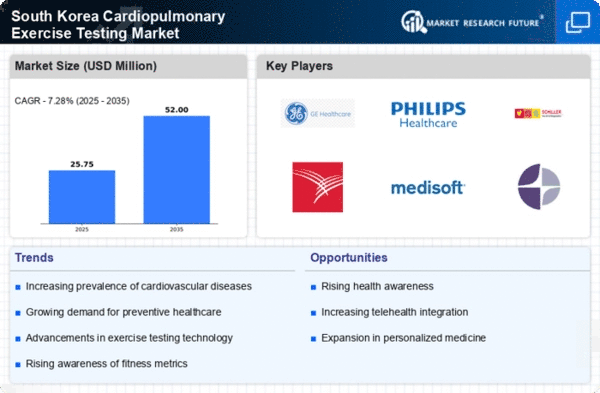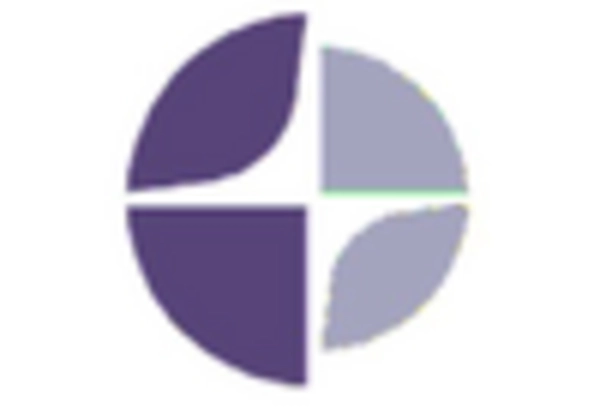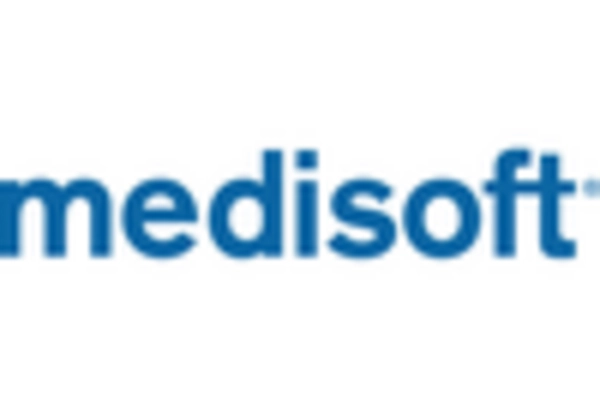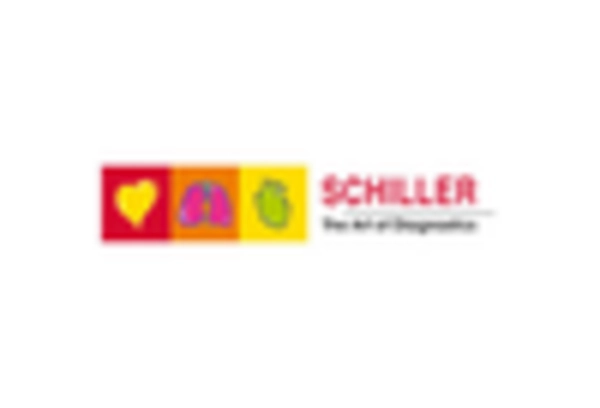Growing Geriatric Population
The demographic shift towards an aging population in South Korea is a crucial factor impacting the cardiopulmonary exercise-testing market. As the elderly population continues to grow, there is an increasing need for comprehensive health assessments to manage age-related health issues, including cardiovascular and pulmonary diseases. Cardiopulmonary exercise testing is particularly valuable for this demographic, as it helps in evaluating exercise capacity and overall health status. The market is likely to expand as healthcare providers recognize the importance of tailored exercise testing for older adults. Additionally, the rise in chronic diseases among the elderly population necessitates regular monitoring, which may further drive the demand for cardiopulmonary exercise testing services in clinical practice.
Government Health Initiatives
Government initiatives aimed at improving public health are significantly influencing the cardiopulmonary exercise-testing market. In South Korea, the government has launched various programs focused on preventive healthcare, which includes promoting regular health screenings and exercise testing. These initiatives are designed to encourage early detection of health issues, particularly respiratory and cardiovascular conditions. As a result, healthcare facilities are increasingly integrating cardiopulmonary exercise testing into routine health assessments. The financial support from the government for healthcare infrastructure and technology is likely to enhance the availability and accessibility of these tests, thereby driving market growth. The cardiopulmonary exercise-testing market could see a notable increase in demand as more individuals participate in health programs supported by government policies.
Advancements in Medical Technology
Technological innovations in medical devices and testing methodologies are propelling the cardiopulmonary exercise-testing market forward. The introduction of advanced equipment, such as portable and more accurate cardiopulmonary exercise testing systems, enhances the ability to conduct tests in various settings, including outpatient clinics and home care. These advancements not only improve the accuracy of results but also increase patient comfort and compliance. The market is witnessing a shift towards more sophisticated software solutions that analyze exercise data in real-time, providing healthcare professionals with valuable insights. As South Korea continues to prioritize technological development in healthcare, the cardiopulmonary exercise-testing market is poised for expansion, with an anticipated growth rate of approximately 8% annually over the next few years.
Increased Focus on Sports Medicine
The rising interest in sports and fitness among the South Korean population is contributing to the growth of the cardiopulmonary exercise-testing market. As more individuals engage in physical activities and competitive sports, there is a heightened awareness of the importance of cardiovascular health and performance optimization. Sports medicine professionals are increasingly utilizing cardiopulmonary exercise testing to assess athletes' fitness levels and tailor training programs accordingly. This trend is likely to foster collaboration between sports organizations and healthcare providers, leading to an increased demand for exercise testing services. The cardiopulmonary exercise-testing market may benefit from this focus on sports medicine, as it aligns with the broader societal shift towards health and wellness.
Rising Incidence of Cardiovascular Diseases
The increasing prevalence of cardiovascular diseases in South Korea is a significant driver for the cardiopulmonary exercise-testing market. According to health statistics, cardiovascular diseases account for a substantial portion of mortality rates, prompting healthcare providers to seek effective diagnostic tools. The cardiopulmonary exercise-testing market is likely to experience growth as these tests are essential for assessing cardiac and pulmonary function, particularly in patients with existing conditions. The demand for early detection and management of cardiovascular issues is expected to rise, leading to an increased adoption of exercise testing protocols in clinical settings. Furthermore, the South Korean government has been investing in healthcare initiatives aimed at reducing the burden of cardiovascular diseases, which may further stimulate the market for cardiopulmonary exercise testing services.
















